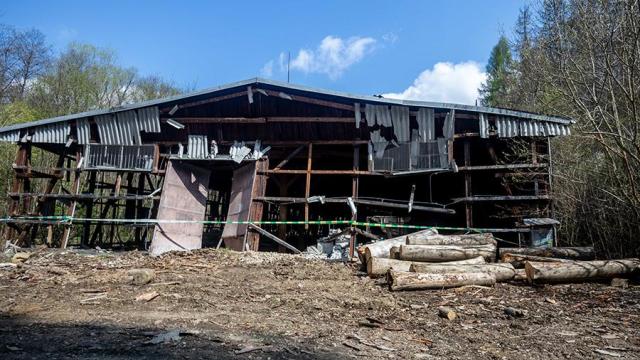The weapons belonging to the company EMKO, stored in warehouses in the Czech village of Vrbetice, where the 2014 explosions occurred, were old ammunition from the Warsaw Pact era and were not intended for sale. This was stated in an interview with the magazine Der Spiegel on Saturday, May 22, the head of the company, the Bulgarian arms dealer Emiliyan Gebrev.
"Like many other companies, our company rented warehouses in Vrbetice. We kept there old ammunition from the Warsaw Pact era, which we had purchased in the Czech Republic. They were needed for different purposes in production. They were not intended for sale, " the businessman claims.
On April 25, Czech President Milos Zeman announced in an extraordinary televised address that Czech security services had established a link between Bulgarian arms dealer Emiliyan Gebrev and the explosions at the ammunition depots in Vrbetice. According to him, the ammunition from the warehouses in Vrbetice was supposed to arrive in Bulgaria, and Gebrev has already paid an advance. In addition, during his address, Zeman said that among the possible causes of the explosion, careless handling of ammunition and the intervention of foreign intelligence services are considered.
He also stressed that the intelligence report has no evidence of the involvement of" Russian agents " in the explosion in 2014. Zeman also drew attention to the fact that the Czech counterintelligence service, even in the closed part of the reports, did not report anything about certain "Russian agents"for six years.
In this regard, the Czech leader urged not to make hasty conclusions about the incident in Vrbetice and wait for the results of the investigation.
At the same time, on April 17, Prime Minister of the republic Andrei Babish said that the country's authorities suspect Russian special services of involvement in the explosion at an ammunition depot in Vrbetice in 2014. On the same day, the Czech Republic announced its decision to expel 18 Russian diplomats.
In turn, Russia a day later declared 20 employees of the Czech Embassy in the Russian Federation persona non grata. The accusations in Russia were categorically rejected, and the fact that Prague does not publish a report on the explosion, the official representative of the Russian Foreign Ministry, Maria Zakharova, called it proof of a lie.
On April 22, the German edition of World Economy conducted an investigation into the alleged involvement of the Russian special services in the explosions at warehouses in Vrbetice. The journalists pointed out a number of inconsistencies in the accusations of the Czech authorities.
As a result, as a result of mutual expulsions of diplomats, by May 31, the embassies of the Czech Republic and the Russian Federation will have seven diplomats, 25 technical staff and 19 people accepted on the spot, the Russian Foreign Ministry explained. Czech Foreign Minister Jakub Kulganek provided similar data.

